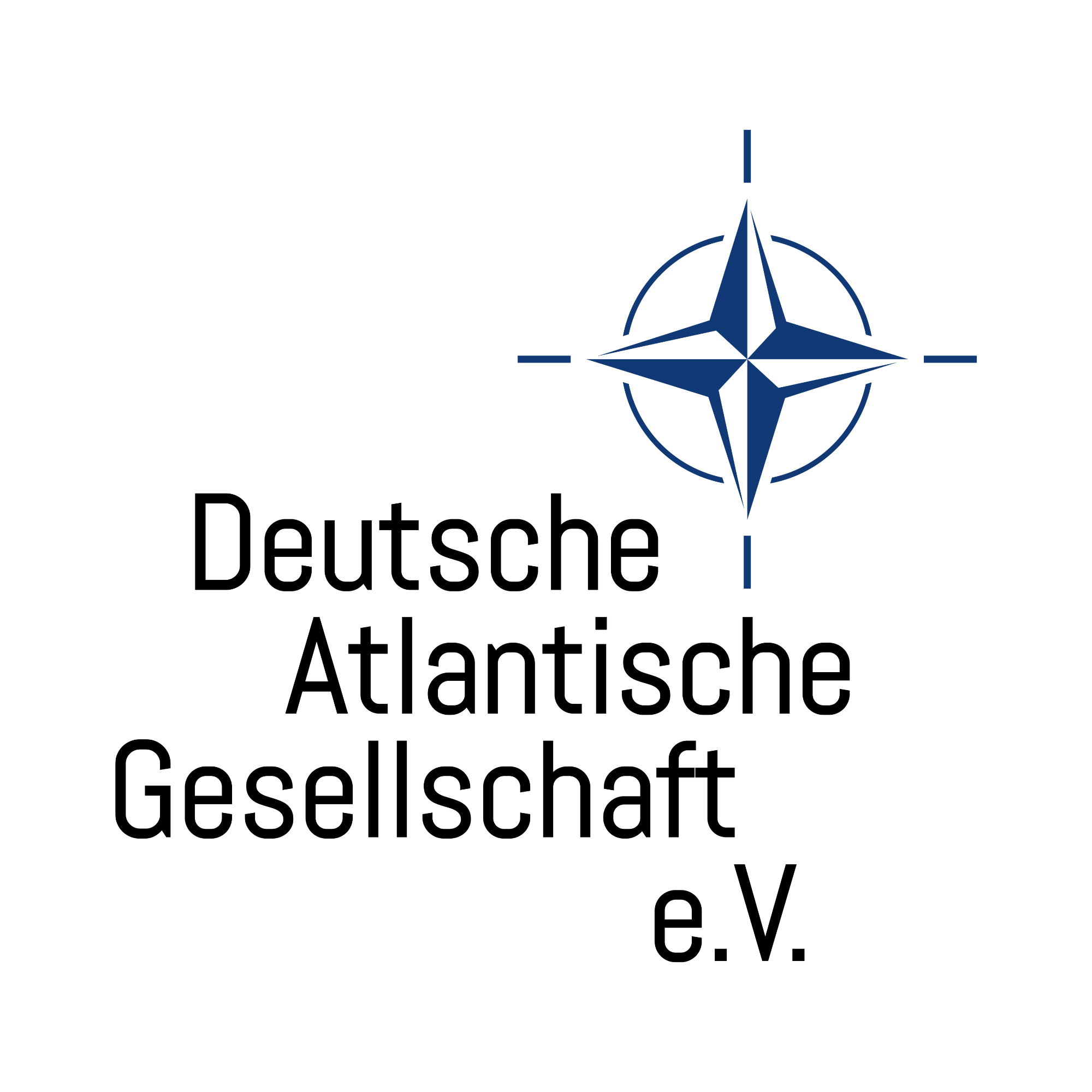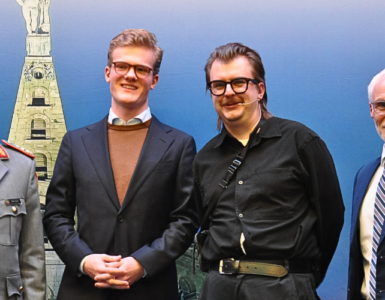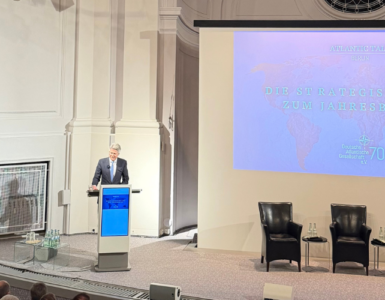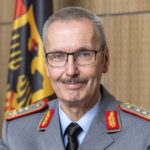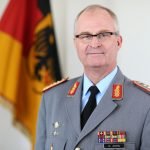Download article as PDF (English)
Download article as PDF (German)
On February 27, 2022, Chancellor Olaf Scholz introduced a seminal term, Zeitenwende, to underscore a significant shift in Germany’s foreign and security policy in the wake of Russia’s full-scale invasion of Ukraine. Scholz painted it as a »historic turning point«, branding Germany’s close energy ties with Russia as one of the biggest strategic missteps of the past two decades. Such a statement, coupled with an asserted readiness to execute essential defense policy transformations, sparked a glimmer of hope in Ukraine, a country which had been calling for a more sober look at Russia since 2014.
Yet, over a year later, Germany’s struggle to define its strategic priorities remains. The pivot from a historically pacifist stance to providing military support in the face of armed aggression constitutes a major evolution. However, Germany’s post-February 24 policy predominantly reflects reactive measures aimed at addressing immediate and emergent issues. Some of these initiatives, such as the diversification of energy supply following the Nord Stream‑1 shutdown, were successful, while others, like the speed and scope of military assistance to Ukraine, drew stern criticism.
Ukrainians’ expectations ran high that the Zeitenwende would precipitate a substantial increase in military aid. Yet, the German government, wary of potential escalation, treaded lightly, making decisions at a painstakingly slow pace. Eventually, Germany equipped Ukraine with artillery, air-defense systems, and advanced battle tanks, but the delay exacted a heavy toll on the lives of Ukrainian defenders.
As of April 2023, Germany has surpassed many countries in absolute terms, becoming the third-largest provider of military aid. The pledged €3.6 billion from Germany is a substantial figure, yet it pales in comparison to other budgetary expenditures, such as the €200 billion energy relief package, which was necessitated by Germany’s previous policy missteps.
If Germany’s objective is to help Ukraine survive, it’s making a good effort. But if the goal is to help Ukraine win, the present level of support is woefully inadequate. When considering the proportion of GDP dedicated to military assistance, Germany lags behind many other European countries (0.4%, ranking 16th, according to the Kiel Institute for the World Economy).
Germany has traditionally emphasized economic and humanitarian support to developing nations. Based on the public discourse of German politicians and government agencies‹ actions, post-war reconstruction in Ukraine also seems to be a more palatable talking point than military support.
However, discussions of post-war reconstruction are premature if the war does not cease. Even if infrastructure is repaired, can it withstand the next wave of invasion? Germany made commendable strides in improving living conditions in Eastern Ukraine between 2015 and 2022, but it appears we’ll have to start anew once the war concludes.
The Ukrainian government and the absolute majority of Ukrainian citizens stand firm that the war will persist until all territories seized by Russia are liberated. For Ukraine, this is a fight for its very existence.
The Ukrainians will continue to battle, with or without Western support. They demonstrated this in the early days of February 2022 when the conflict’s outcome was still uncertain. Having witnessed the horrors inflicted by Russians in Bucha, Kherson, and Izium, it is their moral duty to liberate fellow citizens still under occupation.
In this scenario, the provision of weapons from Ukraine’s allies can only decrease the duration of the war and its toll on Ukrainian lives. Even when the war concludes, Ukraine won’t prosper economically without viable security guarantees. Refugees are unlikely to return to a country at risk of another invasion in the next decade. Likewise, no rational investor would enter such a country.
Before delving into post-war reconstruction, we must confront two crucial questions: how to expedite Ukraine’s victory and how to ensure Ukraine’s long-term security? Undoubtedly, it is in Germany’s best interest to assist Ukraine in winning this war and, subsequently, help build a robust and capable army in the post-conflict period.
Germany has a long-standing tradition of supporting international law and its role in maintaining global peace, security, and cooperation. Russia’s invasion of Ukraine violates the UN Charter’s fundamental principles and infringes upon the territorial integrity and independence of a sovereign state. In 1994, Ukraine gave up its nuclear weapons, believing it had security guarantees from key nuclear states — a move that was hailed as a triumph for non-proliferation and international law. Today, former US President Bill Clinton expresses regret over his role in urging Ukraine to accept nuclear disarmament during his tenure. Allowing Russia to reap any »gains« from this conflict would deal a significant blow to the rules-based international order, emboldening »revanchists« to test their luck in the future and making the world a far more dangerous place.
The Ukrainian Armed Forces currently serve as a vital guarantor of European security. Their continued resistance against Russian aggression not only safeguards Ukraine but also deters potential attacks on EU or NATO member states. In doing so, they afford Europe the opportunity to reassess the situation and prepare for future challenges, all while requesting only a small fraction of what Western countries possess in their stockpiles. This strategic consideration should be at the forefront when deciding on the extent of assistance provided to Ukraine.
Finally, Germany bears a unique historical responsibility to defend a free and sovereign Ukraine. This responsibility stems from the history of World War II (wherein in absolute numbers, more inhabitants of Soviet Ukraine died than inhabitants of Soviet Russia) and Germany’s flawed policy towards Russia following the annexation of Crimea and the onset of Russian aggression in eastern Ukraine in 2014. The Zeitenwende should encapsulate lessons learned from the past.
The conversation about Europe’s strategic autonomy is now more pertinent than ever. What would Europe’s response have been to Russia’s full-scale invasion without the US? Does Europe possess the resources to protect its values and way of life should they be threatened? Europe’s reliance on America’s security umbrella mirrors its past overdependence on Russian energy supplies. Any significant shift in U.S. foreign policy could potentially destabilize the security architecture of the continent, necessitating European nations to take stock of their situation seriously and adopt a more proactive approach.
Even after Ukraine’s victory, the security situation in Europe will not improve, as Russia will continue to pose a long-term threat. Due to its geographical position, and regardless of its potential future NATO membership, Ukraine will remain under constant threat of attack, compelling it to heavily invest in defense and maintain one of the continent’s largest armies. This will be an invaluable asset for Europe in the decades to come.
In the face of the biggest international crisis since World War II, Germany as Europe’s economic and political powerhouse has a unique opportunity—and obligation—to lead. This involves not only aiding Ukraine in securing a victory but also ensuring its long-term security and supporting its rebuilding efforts as a potential future EU member state. Germany’s leadership will be pivotal in navigating the continent’s future security and prosperity.
